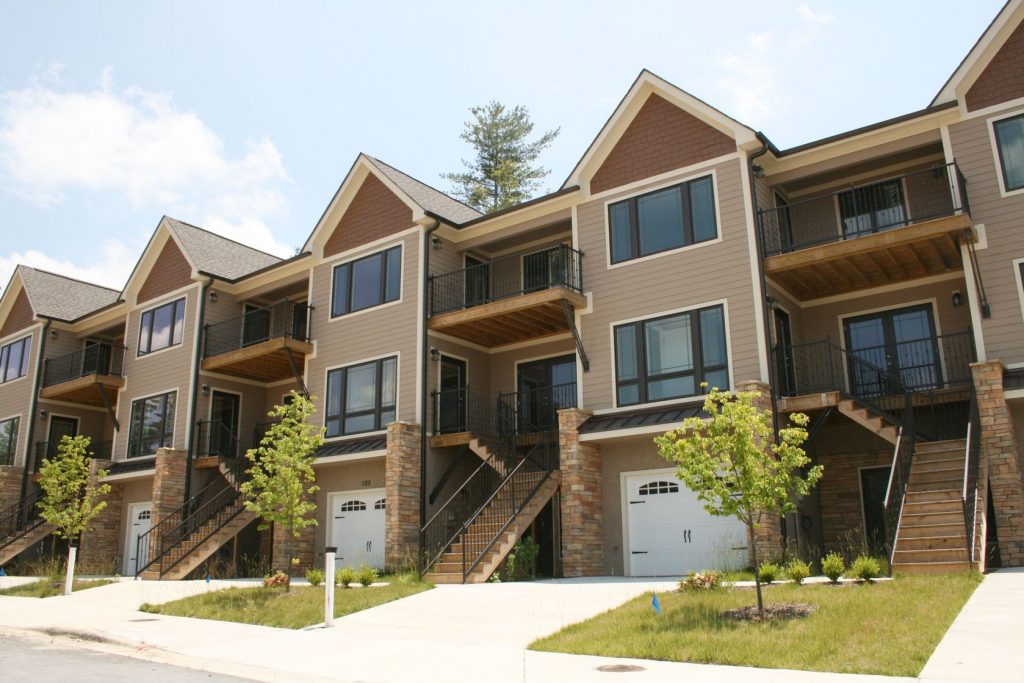- Walk-in Traffic is by Appointment Only - More Details
Everything You Need To Know About Buying a Condo

8 Tips for Investing in Residential Real Estate
March 26, 2021
6 Spring Home Selling Tips
April 8, 2021Buying A Condo In Charlotte
Many of us have been long-term or even life-long renters. We might want to dive into homeownership but aren’t ready for the uncertainty of upkeep or the costs of maintaining our own home. That’s where condos come in. They come with the perks of homeownership, the peace-of-mind of covered maintenance, the convenience of amenities, and the apartment’s affordability. Read on to find out if owning a condo is right for you.
What is a Condo?
To determine if a condo should be in your future, we’ll start by defining what it is and how it differs from an apartment or a single-family home.
A condominium is a home owned by an individual rather than a landlord or company. However, that single residence is inside of a multi-family building. Like an apartment, a condo has more than one unit inside of one building. However, an apartment is for rent, while a condominium is owned by the individual who resides in it.
The payments for a condominium are different than both a single-family residence and an apartment. For starters, the owner of a condo pays a mortgage so that they may outright own the condominium in the future. They also pay fees to a homeowner’s association. These fees serve to cover maintenance, shared spaces like yards or pools, amenities like a gym or parking garage, and shared structures.
A condo can also make city living more affordable. The multi-residence setup means a better location at a fraction of the price. Proximity to important city centers, decreased travel, enhanced walkability and transit, and available parking make condominium living a wise decision for anyone who works near a big city.
Tips for Buying a Condo
-
Make Sure Maintenance is Timely
One of the enormous benefits of owning a condo is that you aren’t generally responsible for your maintenance. If the process isn’t smooth or takes way too long, then you might as well be handling it yourself. Ask other community members if they are happy with their maintenance and if there’s anything you should be aware of.
-
Consider the Amenities
Maintenance and amenities are two of the biggest draws of living in a condominium. A gym right next door isn’t only convenient, it also saves you money. You won’t be paying for gas or membership fees, and you won’t be wasting time driving across town to the gym. Even if you aren’t a massive fan of swimming, a pool can be an asset worth having. If you decide to sell your condominium, the next buyer might consider a pool a critical amenity.
-
Read the Documents
One of the differences between owning a home and owning a condo is that the condo generally comes with a set of rules as part of a homeowners association. These are called covenants, conditions, and restrictions (or CC&R for short). These rules are often beneficial to maintaining property value, aesthetics, and order within the community. The rules are enforced by the HOA and may be different depending on the building.
The CC&Rs often set rules on decorations, maintenance, and general etiquette. This may dictate whether you can have a pet, where you can park, and what kind of vehicle you can park in public areas. In addition to the rules, you should review how violations are enforced. There may be fines assessed for repeated offenses. Fees are also found in the CC&R. A lawyer or professional in the real estate business can help you locate condo association documents and review them for clarity.
-
Find an FHA Approved Condo
Mortgages in a condominium can be more complex than a home mortgage because the condo itself is also involved. Not all condos are approved for FHA financing. A lender can help you navigate the process, and a mortgage professional can assist with locating the right financing.
-
Find Out About Community Meetings
Not everyone wants to be active in a condo association, but if you want a say in how your community is run, it’s important to know when meetings are held. If they’re during times when you’re unavailable, you may consider looking for another place to live.
How to Buy a Condo
Once you’re sold on moving in, it’s time to prepare.
- Inspect community areas
- Find out whether the association has reserve money for upgrades and maintenance
- Find out about parking
- Get pre-approved financing
- Talk with a real estate agent familiar with condominiums
- Move into your dream condo
Need help buying a condo in the Charlotte metro area? Our team can help! Contact our of our real estate agents today to start looking!






